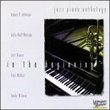| All Artists: Johannes Brahms, Eugene Ormandy, Philadelphia Orchestra Title: Brahms: Violin Concerto; Double Concerto for violin and cello Members Wishing: 0 Total Copies: 0 Label: Sony Original Release Date: 1/1/2002 Re-Release Date: 1/29/2002 Genre: Classical Styles: Opera & Classical Vocal, Forms & Genres, Concertos, Instruments, Strings, Symphonies Number of Discs: 1 SwapaCD Credits: 1 UPC: 696998983526 |
Search - Johannes Brahms, Eugene Ormandy, Philadelphia Orchestra :: Brahms: Violin Concerto; Double Concerto for violin and cello
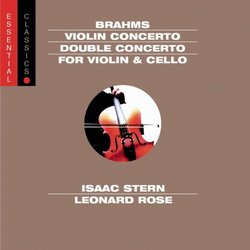 | Johannes Brahms, Eugene Ormandy, Philadelphia Orchestra Brahms: Violin Concerto; Double Concerto for violin and cello Genre: Classical
|
Larger Image |
CD DetailsSimilarly Requested CDs
|
CD ReviewsBrahmsian Through and Through Interplanetary Funksmanship | Vanilla Suburbs, USA | 05/09/2005 (5 out of 5 stars) "If anyone - and I doubt they can still get away with it - wishes to claim that Eugene Ormandy had a "one size fits all" method of conducting, I entreat them to find a more Brahmsian, more Germanic, rendering of the third B's violin concerto than this recording. Eugene Ormandy's treatment of its opening phrases is at once so disciplined yet pliant - with the setup of the same sense of majestic forbearance and layered tonality he brings to his recordings of Brahms' symphonies. The tenuous overlapping of the strings with the winds alone is a textbook example of instrumental balance. Listeners can clearly understand why Ormandy was so renowned as a peerless colloborator. And this overwhelming tidal wave of sound comes even before Stern's violin has uttered a note! Too often, I have heard other maestros conduct a concerto indifferently, on the mistaken assumption that it is, after all, the soloist's opportunity to shine -- not the orchestra's -- least of all, the conductor's. Such a passive approach runs counter to the composer's intentions; especially one such as Brahms, whose musical statements are of symphonic proportions, even in his concertos and sonatas (his First Piano Concerto was originally drafted as a symphony). Ormandy presents Stern with the proverbial "tough act to follow." Isaac Stern's genius lies in the fact that with the singular voice of his violin he rises to the challenge -- and surpasses it. His violin cuts through the orchestra sharp as a stiletto, and never lets up in heightening the sense of drama. Ormandy's genius lies in the fact that the orchestra's accompaniment never overwhelms Stern's violin, yet also never fades into the background, either; Ormandy's is a sympathetic and holistic approach, fluid in tempo and accommodating in dynamics in providing the perfect counter-balance to Stern's performance. Stern and Ormandy performed and recorded many great concerti together while both were with Columbia: Tchaikovsky, Sibelius, Mendelssohn, both of Prokofieff's. Stern always had the highest praise for Ormandy's uncanny ability to anticipate a solist's nuances. "Gene becomes an extension of your own phrasing and music making," Stern said in 1979. "It's almost as if he were taking part in your bowing as you play, because subtleties in pressure and phrasing -- if you're playing well you do them spontaneously -- he responds to instantly, even a millisecond ahead of time. "I've often said," he joked, "that if you were going to catch cold and sneeze next week, Ormandy would already be there with a handkerchief -- you didn't know it was going to happen, but he did." Nowhere is this seamless melding of musical minds so apparent between the two than on this landmark performance. Of all the recordings I've heard of this concerto, none can match Stern's and Ormandy's sense of tension-and-release, which is sustained from the introduction through the finale . It is, by far, the most intellectual performance I've heard -- yet so sanguine, so melodic. There is nothing sloppy or extraneous in Stern's playing: It is pure logic, an exacting rendition in which Stern is in command of every note. Like Heifetz' recording with Fritz Reiner and the Chicago Symphony (1958), this recording is very up-tempo. Yet, unlike Heifetz -- who sometimes dashes through a passage so quickly that he glosses over notes -- every note is endowed with purpose and intent. The finale is breathtakingly bold, without ever being brash. It's one of the best examples of sustained and controlled passion I've heard on records -- akin to God holding a force of nature in his bare hands, unleashing it at the peak of its potency. Both Stern and Ormandy thus have produced a musical document that speaks profoundly towards the respect and awe both men had before Brahms' oeuvre: I cannot tell the difference between Stern's approach towards the work and Ormandy's. Both musicians seem to be channeling the weighty and commanding German composer, but without getting bogged down in stale, scholarly, interpretation. Their passion for Brahms comes through with a clarity one usually associates with the iconoclastic composers, such as Mahler or Satie. Recorded in 1959, this recording is one of the earliest stereophonic recordings in either Stern's or Ormandy's career. On the compact disc, though, you can't tell: The microphones catch every nuance every raspy bass and 'cello string, the ring of the brass, the rush of the wind as its passes through the flutes and the full range of Isaac Stern's virtuosic expression on his very dolce Guarnerius del Gesu. This is a recording for the ages: It entertains, thrills and inspires. As for the Double Concerto, it deserves equally high marks: The communication between Leonard Rose, Isaac Stern, Eugene Ormandy and the orchestra players is truly amazing, and this is the best recording I've heard of it, even topping Toscanini's recording with Frank Miller and Mischa Mischakoff." Fierce energy, but... Musicus | Oslo, Norway | 04/26/2006 (4 out of 5 stars) "I am not entirely satisfied with these performances. In fact, I don't understand what the other reviewers write about, obviously I am on another planet. The playing at this Ormandy/Stern/Rose is as if the life of conductor, soloists and orchestra were at stake; it is performances of fierce energy. I doubt you will find a Stern/Ormandy-performance sounding indifferent, oh no. Still I am not so happy with the result of this Brahms. It has very much the feeling of a live concerto, in which the band is carried away by the music, missing the structure. The performance is always at peak. What I miss is anticipation, foreboding, build up, contrasts... Some times less is more... Well, this is certainly a matter of taste. These performances were events, no doubt about that. I got some recordings of these concertos. Shaham/Wang/Abbado, Szeryng/Starker/Haitink, Fournier/Oistrakh/Galliera, and of op. 77 alone I have even more versions, Oistrakh/Klemperer (grand and beautiful) and Heifetz, with both Reiner (forward drive, very good shape of the work and great playing) and Koussivetsky (great range of moods). Last but not least, the op. 102 with Mordkovitch/Wallfisch/Jarvi. If I should have the two concertos on one single CD, I would go for the Szeryng/Starker/Haitink - amazon-search: B00004Z1QL - because it stirs my appetite for more, it has a certain grandour, it is something of a happy celebration; and in spite of quite slow tempos, it has anticipation, foreboding, build up, as Brahms intended; he shaped his concertos as symphonies with obligato soloists. It never fails to put me in a good mood. And it is very cheap. The only problem is that it is missing quite a bit in passion. If you want state-of-the-art-sound and can tolerate to buy the two concertos separately (you should tolerate that), I recommend Mullova/Abbado live in Japan for the op. 77 and Mordkovitch/Wallfisch/Jarvi for the op. 102. Those performances are the best I have heard to date, considered the wonderful sound, the Mordkovitch/Wallfisch/Jarvi goes straight to the top, and Mullova/Abbado is nothing less than a must-have. Op. 77 Mullova/Abbado live in Japan, more recommended than anything else: Johannes Brahms: Violin Concerto Op. 102 (and Bruch's popular 1st) Mordkovitch/Wallfisch/Jarvi, is good, but not as passionate as the Mullova on op. 77. Yet worth a try: Bruch: Violin Concerto, Op. 102; Brahms: Violin Concerto, Op. 26" Op. 102: a symphonic work pregnant of chamber music airs! Hiram Gomez Pardo | Valencia, Venezuela | 08/11/2008 (5 out of 5 stars) "I won't get tired to affirm that Brahms' chamber music is well upon his Symphonic and Concert works. The true nature of the musical form, the unrestricted expressiveness of his Pastoral approach and the most genuine essence of his musical thought must be seen throughout his chamber works. And thence, once you have been involved by his éclat, go then for his Symphonic and Concert works. Otherwise you would be able to obtain a non desired and distorted vision of him as composer.
This is an incomparable and memorable evidence of what Isaac Stern, Leonard Rose (renowned and outstanding artists who performed with Casals) legated to posterity under the accurate and serene perfection of the maestro Eugene Ormandy, whose dimension has not sill achieved the deserved importance at the moment to analyse the enormous significance of the Philadelphia Orchestra. The Violin Concerto is played with serene elegance and sublime lyricism. For some it may be performed a mite slow, but to me it fits so well. The jewel of the crown is undoubtedly, the Double Concerto. Stern and Rose performed so many times together in chamber programs (just remember his association with Istomin during the sixties and seventies) that contributed in excel grade to have achieved such grade of lyric expressiveness like no other performers had not been able to express. The autumnal approach given in the Second Movement is simply anthological. So, don't miss this cult recording, under no possible pretext! " |

 Track Listings (6) - Disc #1
Track Listings (6) - Disc #1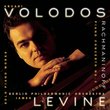
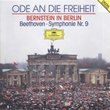
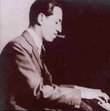
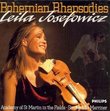
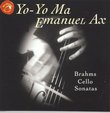

![Vivaldi's Ring of Mystery [With CD]](https://nationalbookswap.com/cd//m/30/0730/80730.jpg)


